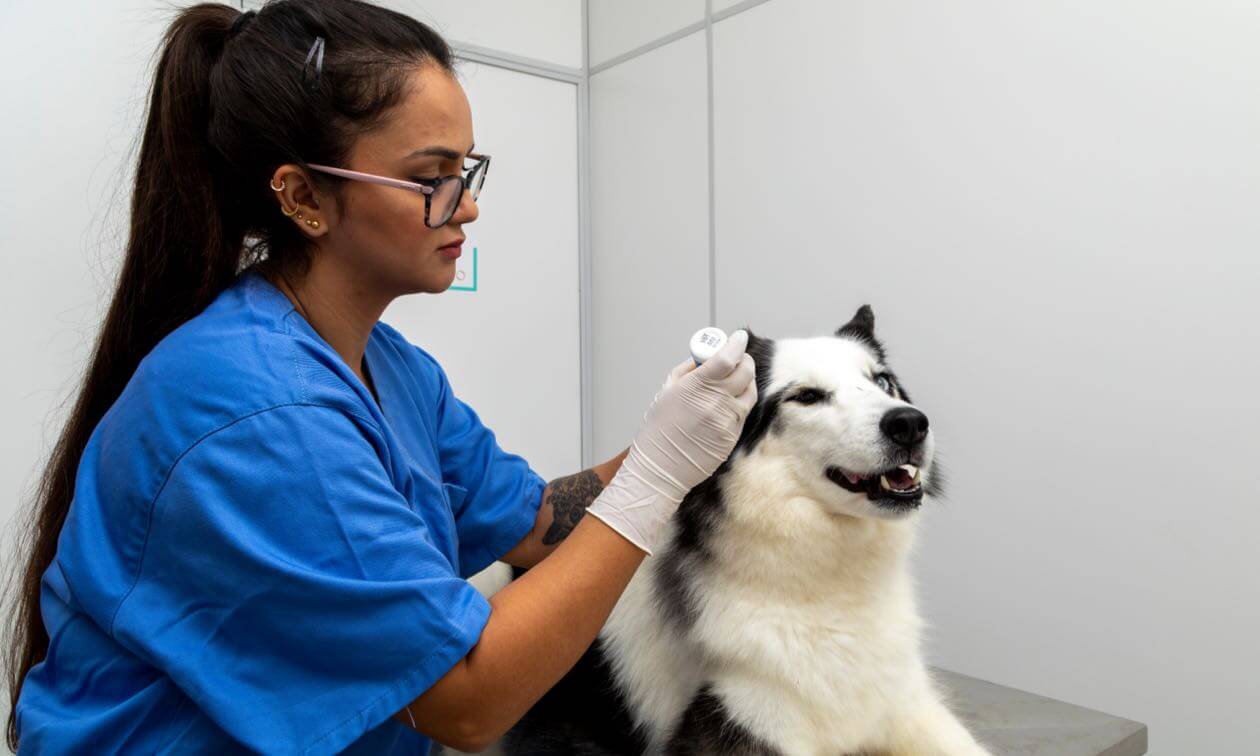Expert Tips for Animal Nourishment From a Veterinarian
Recognizing the nutritional needs of family pets is vital for their total health and wellness and long life. Veterinarians recommend a balanced diet that provides to private variables such as activity, age, and breed level. With the plethora of pet dog food choices offered, pet proprietors typically find themselves browsing a landscape raging with misinformation and misconceptions. As we check out necessary pointers from veterinary experts, it becomes noticeable that correct nourishment is not merely regarding what is fed however involves a deeper understanding of each family pet's one-of-a-kind requirements. What essential understandings could transform your method to animal nutrition?
Comprehending Nutritional Needs
Understanding the nutritional requirements of pet dogs is fundamental to guaranteeing their total health and health. Similar to people, animals need a balanced diet regimen that provides essential nutrients, consisting of proteins, fats, vitamins, carbohydrates, and minerals. These nutrients play critical roles in numerous physical features, such as power manufacturing, immune response, and tissue repair work.
Healthy proteins are vital for development, fixing, and upkeep of body tissues - Vet Mckinney. They are composed of amino acids, several of which are crucial and must be gotten from food. Fats supply a concentrated resource of power and are vital for the absorption of fat-soluble vitamins. When they include fiber., carbs serve as a primary energy resource and can sustain gastrointestinal health.
Each family pet might have unique demands based on aspects such as age, breed, task level, and health condition. It is important to seek advice from with a veterinarian to determine the particular dietary needs tailored to your pet dog's private needs, guaranteeing they receive optimum nourishment throughout their life stages.

Choosing the Right Food
Picking the appropriate food for pet dogs is a vital element of fulfilling their nutritional demands. It is vital to take into consideration variables such as age, breed, wellness, and size status when picking a pet dog food. Young puppies and kittens require formulas that support growth and development, while grown-up family pets need well balanced diets that keep their health and wellness. Senior pet dogs may gain from foods created to deal with age-related concerns, such as joint health and wellness or weight monitoring.
When assessing pet dog food options, try to find items that meet the Association of American Feed Control Officials (AAFCO) criteria, which ensure that the food offers full and balanced nutrition. Components need to be premium, with actual meat as the key source of protein. Prevent foods with extreme fillers, artificial additives, or spin-offs, as these can diminish the total dietary worth.
Consulting with a vet can provide tailored suggestions based upon your pet's particular requirements. In addition, transitioning in between foods need to be done progressively to avoid gastrointestinal distress. By taking these steps, animal proprietors can make certain that they are giving their furry companions with the most effective possible nutrition for a healthy and happy life.
Common Myths About Pet Food
Debunking misconceptions bordering pet food is vital for making sure optimal nourishment for our fuzzy friends. One widespread wikipedia reference myth is that all grain-free diets are superior for pet dogs.

In addition, many animal owners believe that "premium" or "natural" labels ensure higher top quality. However, these terms are typically unregulated and do not necessarily indicate exceptional nutritional value. It is crucial to look at component listings and nutritional profiles rather.
Unique Factors To Consider for Different Breeds
When it involves pet nourishment, special factors to consider need to be taken into account for various types, as each breed can have one-of-a-kind dietary demands see here and level of sensitivities. Large breeds such as Great Danes and Saint Bernards are vulnerable to musculoskeletal problems and may profit from diet regimens developed to sustain joint health, usually featuring active ingredients like glucosamine and omega fatty acids. Conversely, tiny breeds like Chihuahuas may call for higher calorie thickness to fulfill their energy levels, demanding formulations that are abundant in nutrients yet lower wholesale.
In addition, certain types might be predisposed to particular health and wellness concerns, such as food allergies or level of sensitivities. Types like Labrador Retrievers may battle with excessive weight, requiring cautious part control and a well balanced diet to preserve a healthy and balanced weight. On the various other hand, types such as Dachshunds may be much more prone to back issues, triggering a requirement for diet regimens that promote spine wellness and weight monitoring.
Inevitably, understanding these breed-specific nutritional requirements is critical for pet owners. Consulting with a veterinarian can assist in picking one of the most ideal diet regimen tailored to a specific pet's age, breed, and health and wellness condition, making certain optimum nourishment and health.
Relevance of Normal Vet Exams
Comprehending the special nutritional requirements of different types is just one element of accountable pet ownership; regular vet exams play a vital duty in maintaining general health. These check-ups are necessary for very early discovery of wellness issues, ensuring that any type of potential troubles are resolved prior to they end up being major. Regular visits permit veterinarians to monitor your pet dog's weight, oral health and wellness, and vital indicators, which are vital indications of general wellness.
In addition, regular check-ups make it possible for vets to provide customized nutritional advice based upon your pet's specific wellness standing - Animal Hospital Greensburg. As animals age, their nutritional top article demands might alter, and changes may be essential to stop obesity or nutrient shortages. Preventive treatment, including inoculations and parasite control, is also a basic component of these sees, protecting your pet dog from various illness
Along with checkups, these appointments provide an excellent possibility for pet owners to review behavioral modifications or problems about their family pet's consuming habits. By prioritizing normal vet examinations, animal proprietors can ensure a longer, healthier life for their fuzzy friends, ultimately improving their high quality of life.
Verdict
To conclude, guaranteeing ideal pet dog nourishment calls for a comprehensive understanding of individual dietary requirements, proper food option, and recognition of prevalent myths. Special considerations for different breeds have to be represented, and normal veterinary exams play an important function in checking wellness and nutritional changes. Complying with AAFCO criteria and speaking with vets before making nutritional modifications will certainly improve the wellness of animals, eventually adding to their longevity and high quality of life.
With the multitude of pet food options readily available, pet owners typically discover themselves navigating a landscape rife with false information and misconceptions. Each family pet may have unique needs based on variables such as age, type, activity level, and health condition. It is crucial to think about variables such as age, type, size, and health status when picking a pet food. Elderly animals may profit from foods developed to resolve age-related problems, such as joint health or weight administration.
Recognizing the distinct dietary requirements of different types is only one element of responsible family pet ownership; normal veterinary exams play an important duty in preserving total health and wellness.